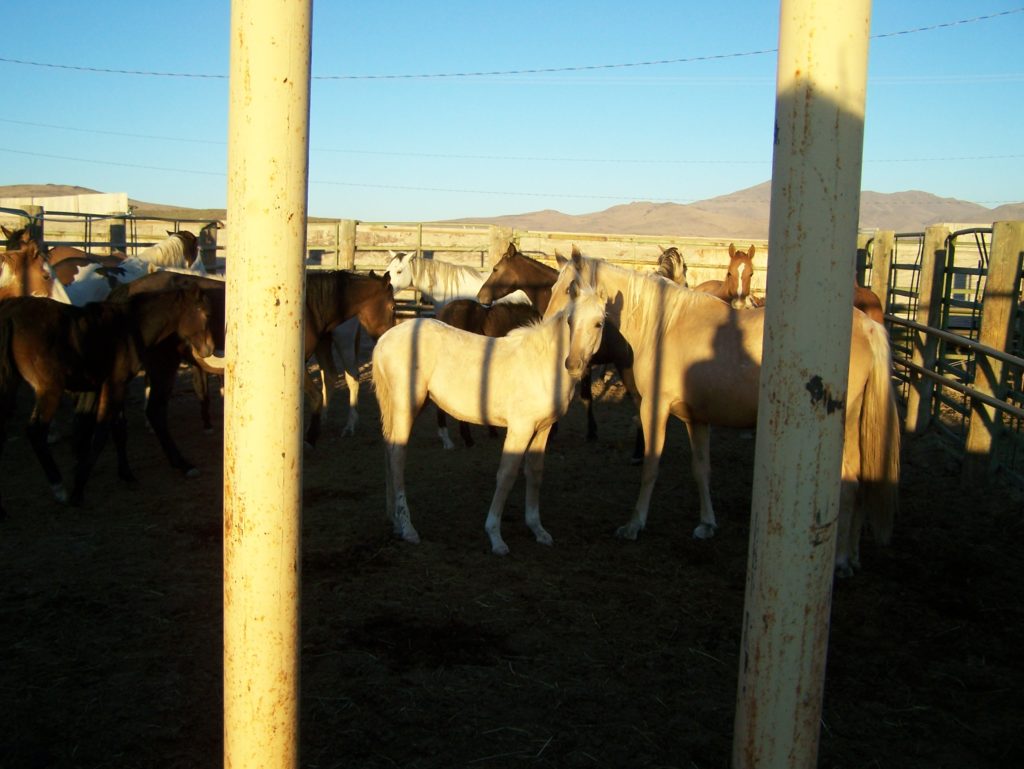
Over 1,000 wild horses have been captured with at least six killed as the Bureau of Land Management continues a massive helicopter roundup in southwest Wyoming.
This largest-ever roundup is planned to drag on into February 2022. It is expected that 3,500 wild horses, which is more than 40% percent of Wyoming’s wild horse population, will lose their freedom. The cost will be over $1.2 million along with tens of millions more of taxpayer dollars used for lifetime care of the horses in government holding facilities.
Right now the BLM’s goal is to zero-out two wild horse Herd Management Areas (HMAs), manage a herd on a third HMA as non-reproducing, and to have drastically reduced the population of wild horses on a fourth HMA.
Also planned in a proposed amendment to the Resource Management Plan (RMP) is to remove 2.4 million acres from wild horse use in southwest Wyoming. For horses left on the range, they want to use dangerous and inhumane management tools like surgical sterilization of wild mares and sex-ratio skewing along with unproven and inhumane gelding of stallions.
The BLM is bowing to the terms of a 2013 consent decree it entered into years ago with the Rock Springs Grazing Association. This group represents livestock ranchers in the area where the horses live (known as “Wyoming’s Checkerboard”). They have been adamantly trying to get rid of the horses and using the land for their own profiteering for years.
This entire situation is just one example of the BLM displaying a blatant bias in favor of private livestock and hunting interests over federally protected wild horses.
The round-up should be immediately stopped and existing long-term solutions implemented to keep in line with the 1971 Wild Free-Roaming Wild Horses and Burros Act. One of several alternatives would be to expand the use of proven, safe, and humane fertility control so that fewer horses are sent to overcrowded off-range holding facilities costing taxpayers millions of dollars.
